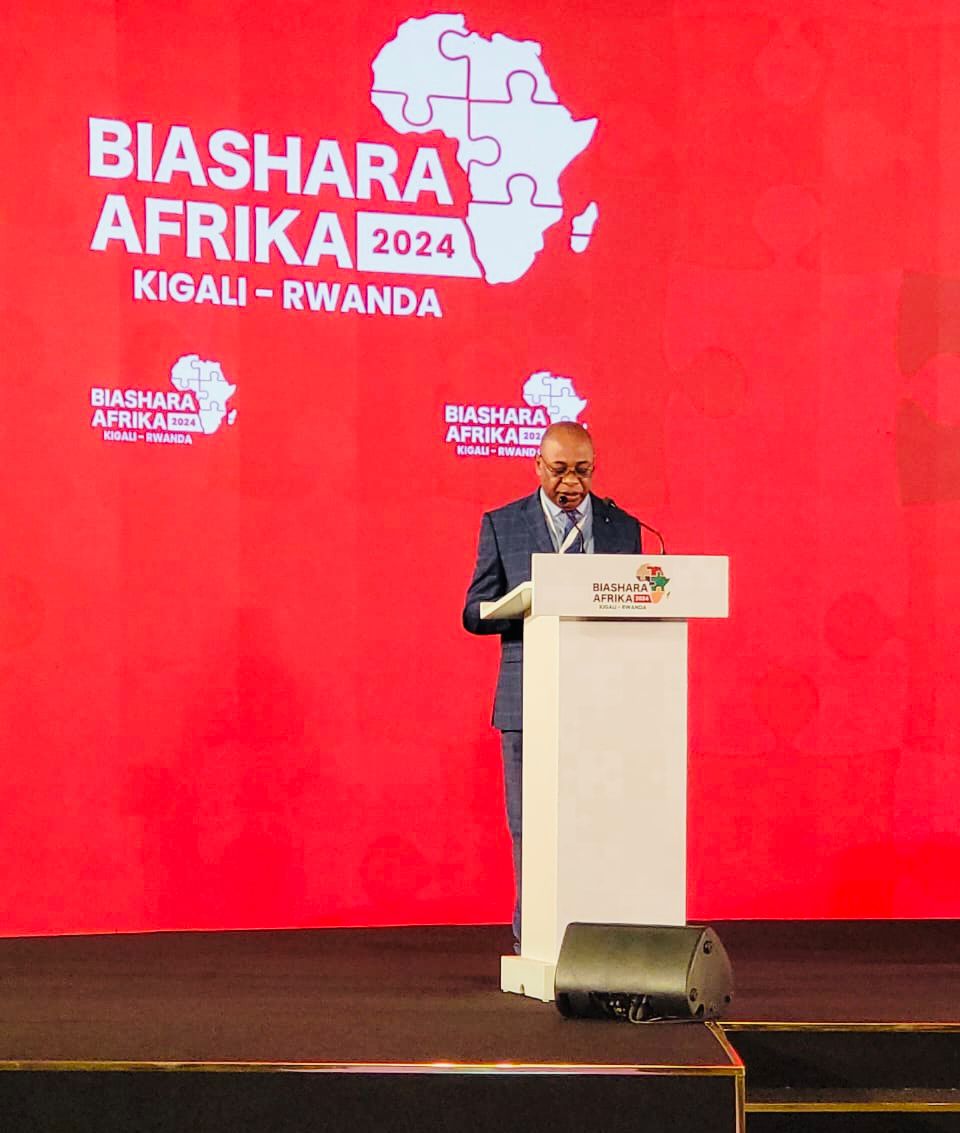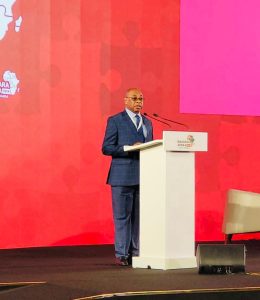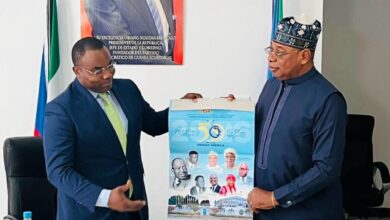Leveraging Strategic Partnerships ,Ports in Africa Critical to Successful AfCFTA Implementation, Says Adalikwu

Secretary General of the Maritime Organisation of West and Central Africa (MOWCA), Dr Paul Adalikwu has described ports in Africa as critical economic infrastructures needed for the successfull implementation of the African Continental Free Trade Area (AfCFTA) programme.
Adalikwu who delivered a keynote address on Friday in Kigali, the Rwandan capital at the AfCFTA guided trade initiative programme BIASHARA AFRICA 2024, said shared logistics, transportation and cross regional partnerships are essentials in surpassing trade barriers on the continent
Speaking on the role of ports and maritime transport in supporting trading companies and special economic zones on the continent, the MOWCA SG said components of port infrastructure like docks, piers, channels harbours and quays should be given attention to facilitate trade.

With over 421 ports in Africa and increasing advocacy on maritime domain awareness, the MOWCA scribe said the potentials of the marine endowments have not been fully tapped for investment and job creation
He listed available technology, uniform standardisation, geographical proximity as areas of strength African countries could maximise for mutual benefit while postulating a country to country and business to business interface across the continent.
For cheaper cargo movement on the continent, he called for the establishment of joint transportation routes to reduce shipping costs and improve vessel turn around time at various ports in Africa while emphasizing on the benefits of trading among proximate countries with rich historical and cultural ties.
He identified inefficient logistics and flawed transportation processes as part of the significant barriers to intra African trade which MOWCA is concerned about and reaching out to multilateral bodies like African Union, Economic Community of West African States(ECOWAS), Economic Community of Central African States (ECCAS) for sustainable solutions.
“One of the significant barriers to intra-African trade is inefficient logistics and transportation. Strategic partnerships can help companies pool resources to optimize their supply chains. For example, companies can share warehousing facilities or establish joint transportation routes to reduce shipping costs and improve the speed of goods movement.
“Trading companies can collaborate with local producers and suppliers in different African countries, leveraging the region’s abundant natural resources and agriculture. This strengthens supply chains and supports local economies by sourcing inputs from within Africa instead of relying on imports from outside the continent.

” With the rise of digital trade, trading companies can form strategic partnerships to create or expand ecommerce platforms that facilitate Cross border transactions. Digital platforms reduce the need for physical presence in multiple countries and offer small and medium sized enterprises (SMEs) across Africa access to broader markets.
“Partnering with fintech companies or mobile payment platforms can help overcome challenges related to Cross border payments, a key bottleneck in intra-African trade. By collaborating on integrated payment systems, trading companies can facilitate smoother transactions and reduce exchange rate risks for intra-African trade.
“Inconsistent standards and certifications can hinder intra-African trade. Trading companies can form partnerships to mutually recognize each other’s certifications and product standards. This simplifies cross border trade and ensures that goods produced in one country meet the standards required in another.Companies can collaborate to develop common quality control mechanisms across multiple markets, ensuring that products meet consumer expectations in various countries. This is particularly important for goods like food products, electronics, and pharmaceuticals” he said










